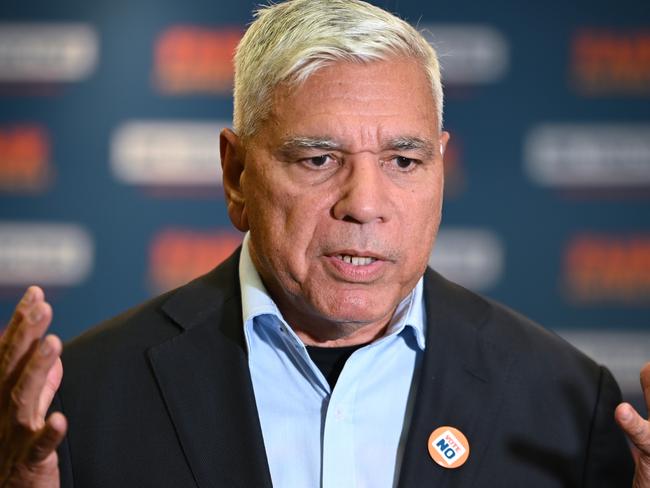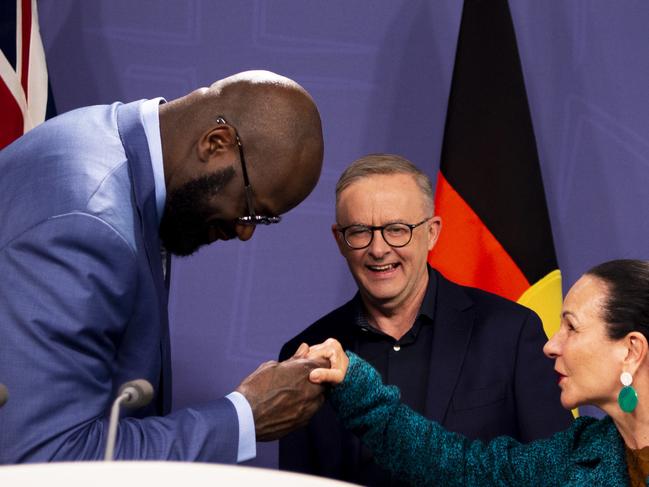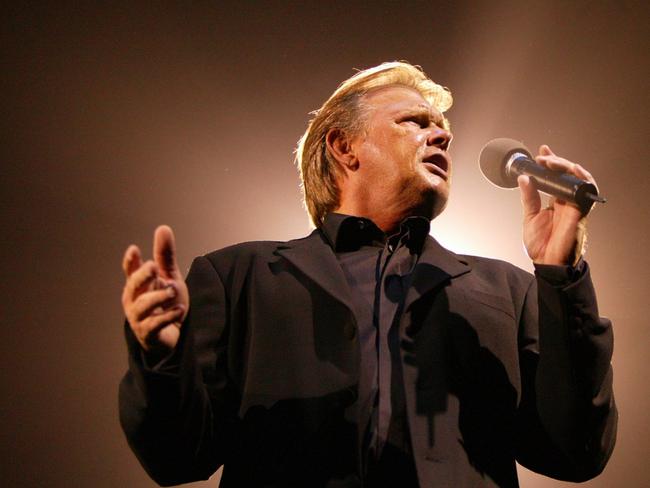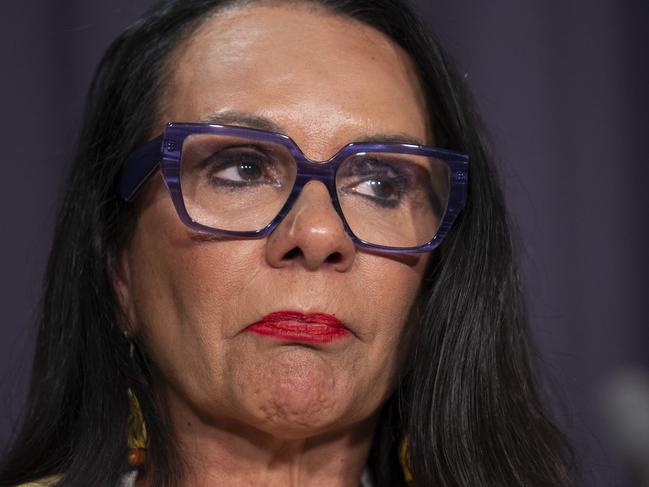Voice referendum: All the winners and losers
From Qantas’s pariah CEO Alan Joyce to Farnsy’s You’re the Voice and that press conference with Shaquille O’Neal - there were plenty of missteps in the campaign. See all the winners and losers.
News
Don't miss out on the headlines from News. Followed categories will be added to My News.
Australians have now had their say – an emphatic No in every state – after seven months of campaigning. But while some have proven themselves as clear communicators and leaders, many will be reflecting on their missteps and what went so wrong.
WINNERS
Jacinta Nampijinpa Price
The Coalition’s spokeswoman for Indigenous Australians emerged as the one of the most authentic and powerful political voices in the nation. She suffered sustained criticism from Yes supporters but remained clear, calm and compelling throughout.

There are calls for Nampijinpa Price to be given greater responsibility in a shadow portfolio such as health or education. Many hope finding a lower house seat for the NT Senator could put her on the path to becoming Australia’s first Indigenous Prime Minister.
Peter Dutton
The overwhelming referendum result has cemented Dutton’s leadership of the Coalition until the next federal election and proven his effectiveness at running a successful campaign against Anthony Albanese and Labor. It looks obvious now but Dutton’s decision to spearhead the No case was seen as risky by many Liberal moderates, given Yes was well ahead in the polls at the time.

Dutton’s challenge now is to translate the massive vote against the referendum into voters for the Coalition. Labor will paint him as a wrecker, so Dutton must quickly establish a positive and proactive plan on addressing the plight of Indigenous Australians most in need.
Warren Mundine
As one of the most prominent No campaigners, Mundine has faced constant attacks on his integrity and has been accused of betraying his people. But alongside Nampijinpa Price, he’s shone a confronting light on the real tragedy in Indigenous communities that’s often ignored but must be urgently tackled. On Saturday night, Mundine delivered an impassioned plea to the media.

“Wake up to yourselves, people are committing suicides in these communities, people are being raped and beaten and these are the questions you come up with?” he told reporters.
“We’re about getting results – reducing suicides and instead of this nonsense that you people carry on with.”
Australia’s Constitution
It’s clear the vast majority of Australians are against altering our Constitution in a significant way, particularly giving special rights to any one group or race above the rest of the nation. For Constitutional purists, the referendum defeat is a victory in ensuring a document that has served the nation well for more than 120 years retains equality as a fundamental cornerstone.
Pollsters
The slide in support for the Voice was well-tracked by almost all major polls. The final tally will be dissected for months but one of the most telling results was a Herald Sun poll last week that showed the Voice referendum was the 17th most important issue for Australians, well below cost-of-living, health and employment. It’s a salient lesson for all politicians, but particularly the Prime Minister.
LOSERS
Anthony Albanese
The PM wears most of the blame for the Voice’s defeat. In the hubris of his 2022 election victory he totally misread the mood of the country and set Australia on course for a divisive and doomed debate. His refusal to compromise on the referendum question or provide basic details to voters was compounded by an amateur campaign and bizarre missteps such as posing with basketballer Shaquille O’Neal and Qantas’s pariah CEO Alan Joyce.

The PM’s political judgment is now being seriously questioned within Labor and he’s already paying the price in opinion polls for focusing most of his energy on the Voice when the average Australian’s number one concern is battling to pay their bills in a cost-of-living crisis.

The Yes Strategy
The Yes camp regarded its trump card as securing John Farnham’s ‘You're the Voice’ song – but they forgot the second line of the chorus is ‘try and understand it’. Supported by political consultants Crosby Textor, Yes went heavy on the ‘vibe’ of ‘being on the right side of history’, but light on details, fearing they would create the confusion that sank the 1999 Republic referendum. However, the information vacuum meant by polling day too many voters still had no idea what the Voice was, or how it could possibly improve outcomes for Indigenous Australians. Besides the Prime Minister, it was never clear who the Yes campaign’s key frontperson was.

By contrast, No had two articulate and credible Indigenous spokespeople – Nampijinpa Price and Mundine – and two simple, potent lines – ‘If you don’t know, vote No’, and ‘Vote No to the Voice of division.’ The No camp was organised earlier, targeted migrant communities and had impact on social media, while Yes ads either preached to the converted, or talked down to Australians rather than engaging the population in a respectful conversation.
Instead of ‘making a noise and making it clear’, books will soon be written about how out of tune the Yes campaign was with everyday Australians.
Linda Burney
The Indigenous Affairs Minister was completely outmatched by Nampijinpa Price.

Burney’s evasiveness and inability to answer basic questions on the Voice in parliament and public appearances made the Yes campaign appear like it was hiding key facts and the Voice’s real agenda from the Australian people.
Jim Chalmers
Queensland is an ongoing problem for Labor and the state has rejected the Voice in the most emphatic fashion. Chalmers is Labor’s most prominent Queensland politician but he’s had no impact on voters despite being the number one spruiker for the Voice in his state.

In contrast to Peter Dutton’s success among his fellow Queenslanders, Chalmers’ lack of influence would have Labor concerned about his ability to make inroads in the Sunshine State at the next federal election.
Virtue-signalling corporates
They jumped on the Voice bandwagon when the Yes polling was 60 per cent plus. But Australia’s virtue-signalling corporates and their CEOs have been given a stark wake-up call that they’re completely out of touch with the vast majority of their customers and staff.

It’s abundantly clear the masses don’t want companies or sporting codes straying outside their lane and posturing on contested political or social issues. Qantas was the most prominent Yes backer, at a time when repairing its catastrophic customer service should have been its only obsession. Given the referendum landslide, wiser heads within the airline would be reconsidering the “welcome to country” messages each landing that grate on so many passengers.
Inner-city elites
The referendum wipe-out has again shown how irrelevant and disconnected from Australia this group is. Most have never met an Indigenous Australian, yet on Sunday were wailing about how racist our nation is.

From the ABC to the usual suspects on social media, most won’t bother to understand why voters have rejected such a divisive and permanent change to our Constitution, and will instead sneer at fellow Australians and howl their shame at having to live in one of the most diverse, democratic, tolerant and multicultural nations in the world.
Originally published as Voice referendum: All the winners and losers


